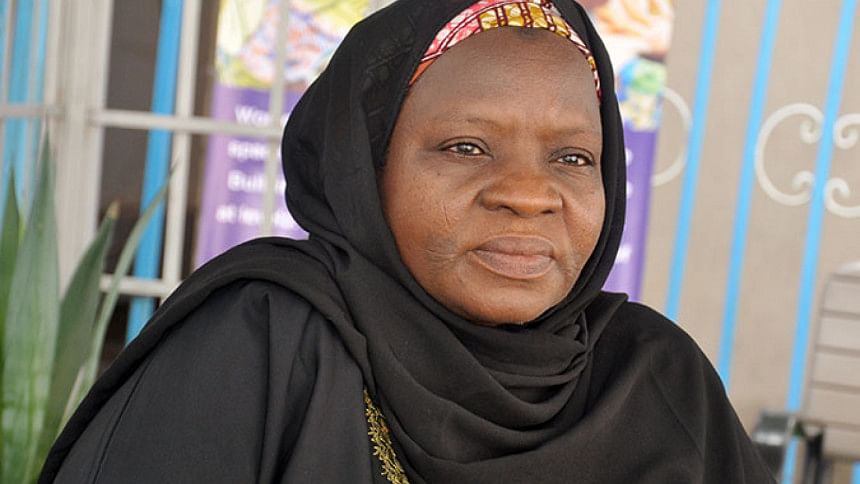From where I stand: Hajiya Halima Mahdi

"Inequality is at the root of the conflict. When you have peace in the home, you can have peace in the society. I don't agree that some roles are exclusively for men and others for women. In my home, men and women are treated equally because there is division of labour. I also encourage women to go back to school because they would have a brighter future if they completed their education.
While carrying out peacebuilding work, when we hear of women getting abused in their homes, we counsel them. We also speak to the men who abuse their wives. Through discussions, we try to find the root cause of the problem and help them find a peaceful resolution.
When it comes to rape, most women don't even want to talk about it because of the stigma associated with it. We advise them to speak out so that the perpetrator can be punished. In the past, women were expected to keep silent. Now, we advise them to go to the police and speak to lawyers who would take up their case.
I have learned how to mentor and help through the trainings that UN Women provided us. We share the information that we learn in the trainings with the rest of the community and replicate the training so that more community members can become mentors for peacebuilding."
Hajiya Halima Mahdi, 60, is a female chief and retired civil servant from Kaltungo local government, Gombe State, Nigeria. She is one of the 50 women mentors trained by UN Women as part of the Northern Nigeria Women, Peace and Security Programme, funded by the European Union, which aims to strengthen women's leadership and engagement in peacebuilding efforts. Hajiya Halima supports young women to go to school and mediates in interpersonal conflicts in her community. She also encourages young women survivors of sexual abuse to seek justice and support. Her work directly contributes to Sustainable Development Goals: SDG 16, which promotes peaceful and inclusive societies, as well asSDG 5 on gender equality and empowerment of all women and girls and its related target on ending violence against women.
Read more stories in the "From where I stand..." editorial series.
"This story was replicated from the UN Women website. The Daily Star is an official partner of UN Women's Step It Up! Media Compact, an alliance of media organizations committed to playing an active role in advancing gender issues within the framework of the Sustainable Development Goals (SDGs)."

 For all latest news, follow The Daily Star's Google News channel.
For all latest news, follow The Daily Star's Google News channel. 



Comments